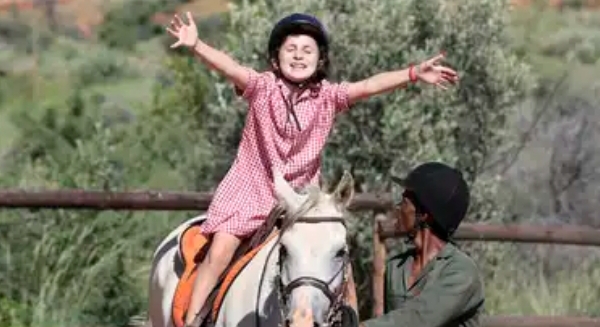Therapeutic horse-riding program empowers Namibian children with disabilities, enhancing their physical, cognitive, and emotional development.
Namibia, horse-riding becomes therapy for children with special needs


Twice each week, Susan De Meyer opens the doors of Bergheim Country Estate, located on the outskirts of Windhoek, Namibia’s capital, to children from the Hope Village Orphanage and Dagbreek School for Children with Disabilities. These children come to participate in the 'Enabling through the Horse Program', an initiative specifically created for young individuals with special needs.
Through this program, the children engage in equestrian activities designed not only to teach them how to ride horses but also to serve as a therapeutic tool aimed at enhancing their cognitive and psychomotor skills. The participants, aged between five and fifteen years, have a range of disabilities and developmental disorders, including cerebral palsy and foetal alcohol syndrome.
Susan De Meyer, a former teacher and experienced equestrian, was inspired to start this initiative after witnessing the positive effects horse-riding had on her own son, who is dyslexic. She observed that horseback riding significantly improved his abilities, which motivated her to extend the benefits to other children facing similar challenges.
She explains that horse-riding offers numerous advantages to children with disabilities. It helps them develop better balance and equilibrium, encourages proper posture—which in turn supports academic performance—and even stimulates speech development. According to De Meyer, children who previously struggled with verbal communication often begin to speak while riding because the rhythmic motion of the horse integrates with their body, creating a unique therapeutic experience.
Chriszell Louw, who teaches in the junior phase at Dagbreek School, has been bringing her students to the program and has already noticed significant improvements. She recalls how many of the children were initially fearful of the horses, but their attitudes quickly shifted. Now, the children eagerly anticipate their riding sessions and express excitement when they learn they will be visiting the horses. Some are even so enthusiastic that they want to head off to the stables on their own.
The program also receives strong backing from Richard Frankle, the President of the Namibia Equestrian Federation, the official body overseeing equestrian sports in the country. Frankle supports the initiative not only for its immediate benefits but also for its long-term vision: to eventually nurture para-athletes who can compete in equestrian disciplines such as show jumping, endurance riding, and dressage.
He acknowledges that while some parents initially feel apprehensive about allowing their children to ride such large animals, these fears are quickly allayed once they witness the positive changes. He notes that as soon as parents, teachers, and the broader community observe the children’s progress, their confidence in the program grows rapidly. According to Frankle, the benefits of the initiative become evident almost immediately, fostering widespread support and appreciation.

 বাংলা
বাংলা  Spanish
Spanish  Arabic
Arabic  French
French  Chinese
Chinese 
